
Charlotte Shurtz: Tell me a little bit about yourself. I know you do artwork and that you write some poetry. Can you tell me a little more?
Matilyn Mortensen: Yeah, I’m a journalist, and I’m a news director at a public radio station in Logan. I’ve always been really creative. I really like to paint, and draw, and write poetry. That’s something I like to do kind of more for fun and more for like myself. I do share it but it’s all very amateur. It’s not what I studied or anything but it’s always been something I’ve really enjoyed.
Charlotte: I also like to do art and poetry, but once again it’s just a hobby.
Matilyn: Yeah, it’s a very joyful thing.
Charlotte: Yeah, absolutely. What started your journey to seek the feminine divine?
Matilyn: So I think it would have been about two years ago, I discovered the book Mother’s Milk by Rachel Hunt Steenblik And before then, although I had always wanted to talk about women in the scriptures and things like that, I had never been very comfortable with talking about Heavenly Mother. I remember being a missionary and visiting with a member who really wanted to talk about [Heavenly Mother], and I was so uncomfortable. I was like this is not the time or place, which seems funny now because I am not sure why, of all the other things that I was bothered by. . . why was I just like no, we can’t talk about that. But then, I got older and started to read the Heavenly Mother essay in gospel topics, and then read Rachel Hunt Steenblik’s book Mother’s Milk, which was like the first time I’d really seen Heavenly Mother in literature in a very accessible way. I just kind of became like okay, this is something that I actually really want, and I really need and this is something that’s been missing from my faith experience. . . I also feel like about the time that I came to that, it seems like that must’ve been as a cultural turning point happened. I feel like in the past few years, like, obviously I’ve been looking for it, but even it just seems like more and more it’s popping up. So I feel like it happened for me at a time when [the feminine divine] was starting to surface a lot more in art, and poetry, and in like those circles on social media.
Charlotte: Yeah there absolutely is this grassroots, or from the pews up, movement to recognize Heavenly Mother and to seek Her and recognize Her influence in our lives and in our doctrine. Thank you for sharing that.
How do you connect with the feminine divine personally? I know some people meditate or create artwork, or they read books, etc. How do you connect with the feminine divine?
Matilyn: For me it’s a lot of seeking art and poetry. Like the art I have on my walls in my bedroom is divine feminine art, and you know, I like to read. Since Rachel’s book has come out there’s been a lot more books that have started to come out that are writing about Heavenly Mother, and I like to read them. But I think a huge part for me has been changing how I God-speak in my head. . . That’s something that Rachel mentioned in her book. It matters how we God-talk, you know, whether we talk just about Heavenly Father, or whether we’re talking about Heavenly Parents. So, in the past few years I’ve made a conscious effort to shift how I talk about God, and how I think about God, and how I envision the God that I’m connecting with. I’m shifting to the idea of parents, and like shifting when I’m thinking about the world, what I’m grateful for, or thinking about where the Holy Ghost comes from. . .The biggest thing for me is shifting how I think about who I’m connecting with.
Charlotte: I also really love that poem by Rachel Hunt Steenblik about how we God-talk and how we think and we talk about God really impacts so much of our lives. And that poem definitely changed my life too. I do think it’s very important to think about how we God-talk and what implications that might have. One of the things I like to do, as like an experiment to shift my perspective when God-talking, is to imagine a conversation. If I were to sit down for face to face conversation with Heavenly Mother today, what would I ask her? What would I hope she would say to me? So, would you be willing to share with us either what you would want to ask Heavenly Mother or what you hope she would say to you?
Matilyn: I’ve been thinking about that because you wrote about it in your email. And I think what I would hope that She would say is I hope that She would tell me that She is hoping for more, too. And that things are not complete or finished. And I think—and this maybe sounds a little bit silly—I think I’d want to know that She’s dissatisfied with where we’re at, too. Because even though in the past few years I’ve enjoyed the grassroots movement, and even though I’ve enjoyed the poetry and the art and the seeking, and even though that is so fulfilling to my soul, I really want [Heavenly Mother] to be an integrated, normal theme. I want it to be very comfortable when we talk about Her. I want it to be something we talk about in General Conference. I want it to be something that like little kids grow up thinking about their Heavenly Family that way. I think that that equates to women being treated better. I think it equates to people on the margins—whether it’s sexual orientation, whether it’s racial identity, no matter what the margins are—I think it equates to all of us being treated better. I think it equates to women being listened to and believed, and taken seriously, and put in positions of leadership. And so I would want Heavenly Mother to say that . . . She’s not satisfied either. And that She’s working for those things and that there’s more to come. That’s what I would hope as I think about why my belief in the Divine Feminine is important. It’s because it indicates to me the hope for more and the hope that this is not all, that this is not finished.
Charlotte: That is really beautiful. You want her to be unsatisfied, too, and validate the hope that we have to have a better relationship with feminine divine is a very valid real hope that has potential of being fulfilled
Matilyn: That’s what I hope, I think, just that validation that She is also wanting something better when it comes to the treatment of women, and marginalized communities, and really, our relationship with her.
Charlotte: I love that. You recently started a Kickstarter for a book called A Star for The Son. And I think that book may also be filling in that gap where we want more about Heavenly Mother and more of a relationship with Her. Will you share a little bit about your project and what inspired it?
Matilyn: So, I have a younger brother. And it’s funny to call him that because he’s 22 so he’s not little. But he’s my younger brother, and he was asked to read a poem in sacrament meeting on the Sunday before Christmas. He texted me the night before and he said, “Hey, I would really like to read a poem about Heavenly Mother when Jesus was born. Do you know of any?” I looked up a few, but they weren’t quite what he had been looking for.
I was so touched that this is something that my brother would think about, that if he didn’t do something that it was very unlikely that Heavenly Mother would be a part of that service. And I did not want to pass up this opportunity to talk about Her because we just don’t do it enough. So I thought, what could I write? I sat down, and I went through some thoughts, and I wrote something. I sent it to him after he had gone to bed on Saturday night. Sunday morning he woke up, and he’s like, you know, that’s the poem I want to read. I hadn’t told him that I wrote it because I didn’t want him to feel obligated if he thought it was terrible. He’s like, who wrote it? When I told him, he said that that’s what I thought at first.
He shared it, and it just went overwhelmingly well. . . I think whenever we talk about Heavenly Mother in church and things like that like, it’s a little so scary because there’s definitely the idea that we can’t be talking about Her. (He goes to a different ward than I do, but it was a ward with our friends and our family.) The responses of people who were in sacrament meeting and the responses on social media were that this is something that people are hungry for. They wanted to talk about Heavenly Mother and Christmas, and they wanted to think about how she influenced Jesus Christ, and his development, and his being the Savior.
And I also love to paint and so I was just thinking, you know, there’s not a lot of books, I think there’s maybe two or three depending on what books you’re counting, that are targeted for connecting children with the idea of Heavenly Mother. And so it just seemed like to put art with this poem and to put it in a book form would be a way that it would be really accessible for children to have the idea that this is normal. But I think also for adults getting used to something new, art and poetry can just really help it to be simple enough to just kind of speak to your spirit and maybe not get all your logic in the way or, you know, all the things you’ve been taught in the way. So that was kind of my thought. It seemed like something that really resonated to people, and that putting it in a way that you could put it on your shelf or you could put it on your coffee table or you could read it with a child you cared about would be a way to kind of help people connect with that more.
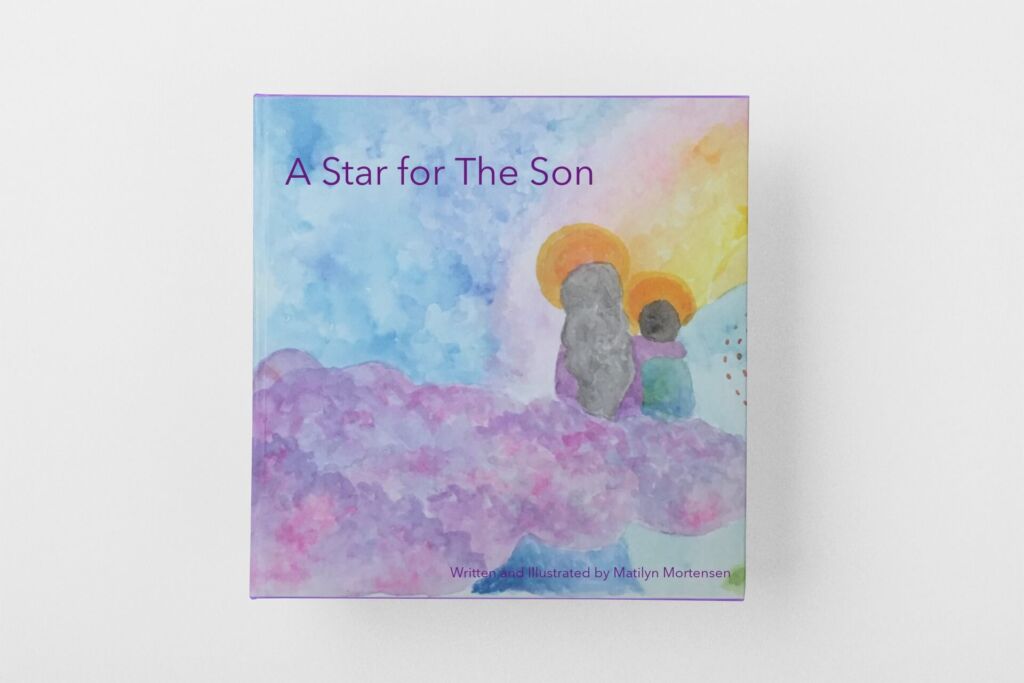
Charlotte: Definitely. I love how you just made something out of it. You were like, there’s a need for this and I’m going to do something to fill it.
Matilyn: Thank you.
Charlotte: Do you have anything else you’d like to share?
Matilyn: I think what I would say is it was really opportune the point that I discovered Rachel’s book. I think it was like December 2018, so it would have been about two years ago. And it just came at this point in time where I found myself in a lot of painful situations with my faith, culminating a year later with an experience that was super painful and super disheartening. Like I don’t want my faith to be causing me this much pain.
To have been thinking about Heavenly Mother and reading and looking at art was so helpful because they helped me remember what it was about my faith that I loved, and what it was about my faith that rang true to me. In these situations where people were making decisions that were causing me pain in spaces of faith, it helped that I could remember that I have a relationship with the divine. I have a Heavenly Mother. And I want to be here because this is something that’s offered by my church and by my religion that I don’t necessarily find other places. And I think it’s important that we talk about those things because I think we feel a lot of pain, and I think finding ways to communicate about Heavenly Mother can be something that helps build a fuller religious experience. I think She can help people hold onto things that they care about maybe when other things around in their faith experience aren’t lining up with what they’re hoping for.
Charlotte: That really resonates a lot with my own experiences. Heavenly Mother saved the idea of God for me, in some ways.
Matilyn: No, it really did for me too.
Charlotte: The way that God is talked about or things that are attributed to God by members of my faith community don’t always seem to align with what I believe about God or hope about God. But having Heavenly Mother to believe in, too, has offered hope, and a way to still connect with the divine.
Matilyn: Heavenly Mother for everyone, but I think especially for anyone that felt marginalized by faith, I think Heavenly Mother holds the hope of things to come.
. . . The concept of God is shaped by so many things. There’s lots of human tradition and ritual that’s attributed to God, that just is the way it’s been throughout history, like we’ve built upon it, we’ve built upon it, we’ve built upon it, we’ve built upon it.
Although Heavenly Mother is a concept that we know has been around throughout history (the divine feminine), because it’s been a truth that has not been held on to like the idea of the masculine god has been, it seems like it hasn’t been built upon in the same way. And so, to me, Heavenly Mother seems to hold the hope of not knowing everything. We don’t know what there is to come and there’s places for all of us.
And that’s what I find a lot in the idea that we have the Mother in Heaven.
Learn more about Matilyn’s book A Star for The Sun on Kickstarter. Interview conducted by phone on January 19, 2020.


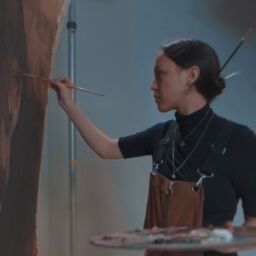
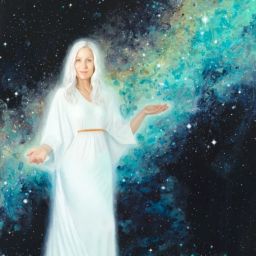
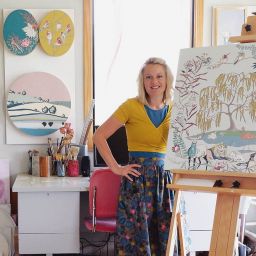

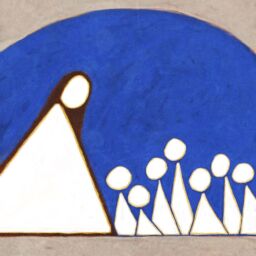
Beautiful post, Thank you!